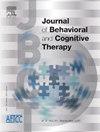每日自我反省和监控社交网络屏幕使用时间对减少社交网络使用的有效性
IF 1.6
Q3 PSYCHIATRY
引用次数: 0
摘要
社交网络服务/网站(SNS)的使用被认为是一把双刃剑:尽管它是无限交流、社交可能性和娱乐的来源,但它也会助长成瘾症状,恶化心理健康。全球SNS使用的空前增长引发了关于管理SNS使用的必要性以及可能的工具和方法的讨论。本研究试图进行并测试一项干预措施,该干预措施结合了自我反思日志的认知行为技术,以帮助参与者管理和减少他们对社交网络的使用。共有68名年龄在18-25岁之间的参与者通过在7天内提交他们的智能手机屏幕时间来监测他们的日常社交网络使用情况,并在休息14天后进行另外5天的随访。在7天的时间里,实验组(n1 = 34)的参与者采用了自我反思的认知行为技术,并提交了每天的日志记录,而对照组(n2 = 34)的参与者只监测和提交了他们的屏幕时间。研究结果表明,每天的自我反省和日记并没有显著减少实验组参与者的社交网络使用,因为两组的社交网络使用在7天内都没有显著减少。此外,在随访期间,两组在SNS使用时间上无显著差异。研究结果表明,在短暂的干预期内,屏幕时间监控和自我反思并没有导致显著的行为改变,需要更多的研究来阐明有效的干预工具。本文章由计算机程序翻译,如有差异,请以英文原文为准。
Effectiveness of daily self-reflection and monitoring SNS use screen time in reducing SNS use
Social Networking Service/Site (SNS) use is deemed a double-edged sword: despite being a source of unlimited communication, networking possibilities, and entertainment, SNS can foster addiction symptoms and worsen mental health. The unprecedented growth of SNS use globally raised discussions about the need to manage SNS use and the possible tools and methods to do so. This study attempted to conduct and test an intervention which incorporated a cognitive-behavioral technique of self-reflection journaling to help participants manage and reduce their SNS use. A total of 68 participants aged 18–25 years monitored their daily SNS use by submitting their screen time from their smartphones during a period of seven days, and again, during another five days of follow-up after a 14-day break. During the seven-day period, participants (n1 = 34) in the experimental group applied a cognitive-behavioral technique of self-reflection and submitted daily journal entries, while participants in the control group (n2 = 34) only monitored and submitted their screen time. The findings suggest that the daily self-reflection and journaling did not significantly reduce SNS use of participants in the experimental group, as the SNS use of both groups did not significantly decrease over the 7-day period. Additionally, no significant differences were observed in the SNS use duration between the two groups during the follow-up stage. The study findings suggested that screen time monitoring and self-reflection did not lead to significant behavioral changes in this short intervention period, and more research is needed to shed light on effective tools for intervention.
求助全文
通过发布文献求助,成功后即可免费获取论文全文。
去求助
来源期刊

Journal of Behavioral and Cognitive Therapy
Psychology-Clinical Psychology
CiteScore
3.30
自引率
0.00%
发文量
38
审稿时长
60 days
 求助内容:
求助内容: 应助结果提醒方式:
应助结果提醒方式:


